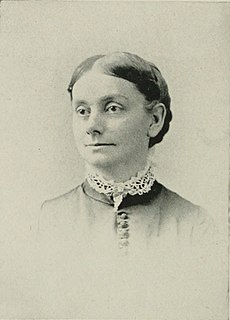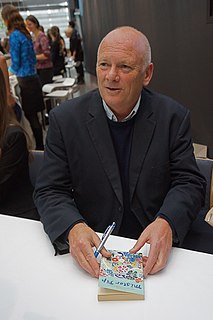A Quote by Mason Cooley
Beggars remind us that not all miseries arise from our ideas.
Related Quotes
I saw rich beggars and poor beggars, proud beggars and humble beggars, fat beggars and thin beggars, healthy beggars and sick beggars, whole beggars and crippled beggars, wise beggars and stupid beggars. I saw amateur beggars and professional beggars. A professional beggar is a beggar who begs for a living.
The suppression of uncomfortable ideas may be common in religion or in politics, but it is not the path to knowledge, and there's no place for it in the endeavor of science. We do not know beforehand where fundamental insights will arise from about our mysterious and lovely solar system. The history of our study of our solar system shows us clearly that accepted and conventional ideas are often wrong, and that fundamental insights can arise from the most unexpected sources.
We depend on our surroundings obliquely to embody the moods and ideas we respect and then to remind us of them. We look to our buildings to hold us, like a kind of psychological mould, to a helpful vision of ourselves. We arrange around us material forms which communicate to us what we need — but are at constant risk of forgetting what we need — within. We turn to wallpaper, benches, paintings and streets to staunch the disappearance of our true selves.
None of us like the concept of law because none of us like the restraints it puts on us. But when we understand that God has given us his law to aid us in guarding our souls, we see that the law is for our fulfillment, not for our limitation. The law reminds us that some things, some experiences, some relationships are sacred. When everything has been profaned, it is not just my freedom that has been lost- the loss is everyone's. God gave us the law to remind us of the sacredness of life, and our created legal systems only serve to remind us of the profane judgments we make.
In a world where there are no longer books we have almost all of us read, the movies we have almost all of us seen are perhaps the richest cultural bond we have. They go on haunting us for years the way our dreams go on haunting us. In a way they are our dreams. The best of them remind us of human truths that would not seem as true without them. They help to remind us that we are all of us humans together.
I think the biggest thing that I have to do is to remind people that poetry is there for us to turn to not only to remind us that we're not alone - for example, if we are grieving the loss of someone - but also to help us celebrate our joys. That's why so many people I know who've gotten married will have a poem read at the wedding.
The Americans say that we are ungrateful-but I ask them for heaven's sake, what should we be grateful to them for-for murdering our fathers and mothers?-Or do they wish us to return thanks to them for chaining and handcuffing us, branding us, cramming fire down our throats, or for keeping us in slavery, and beating us nearly or quite to death to make us work in ignorance and miseries, to support them and their families. They certainly think we are a gang of fools.
We may feel bitterly how little our poems can do in the face of seemingly out-of-control technological power and seemingly limitless corporate greed, yet it has always been true that poetry can break isolation, show us to ourselves when we are outlawed or made invisible, remind us of beauty where no beauty seems possible, remind us of kinship where all is represented as separation.



































